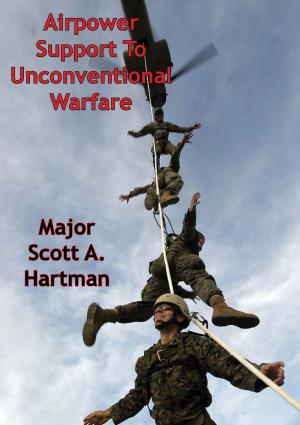Operation Corporate: Operational Artist's View Of The Falkland Islands Conflict
Nonfiction, History, Middle East, Persian Gulf War, Military| Author: | Lieutenant Colonel Richard C. Dunn USMC | ISBN: | 9781782896654 |
| Publisher: | Tannenberg Publishing | Publication: | August 15, 2014 |
| Imprint: | Tannenberg Publishing | Language: | English |
| Author: | Lieutenant Colonel Richard C. Dunn USMC |
| ISBN: | 9781782896654 |
| Publisher: | Tannenberg Publishing |
| Publication: | August 15, 2014 |
| Imprint: | Tannenberg Publishing |
| Language: | English |
On 2 April 1982, after more than 16 years of inconclusive diplomatic negotiations with Great Britain, Argentina launched Operativo ROSARIO, a military campaign designed to take by military means what the Argentine government could not secure by political means: the Islas Malvinas or what the British and the Islanders call the Falklands. As happens in many such instances, the Argentine government miscalculated the political resolve and military response of their British opponent. Refusing to accept the Argentine military action as a “fait accompli”, the British government responded to the Argentine invasion of the Falkland Islands with Operation CORPORATE, a military campaign to regain her lost territory. Great Britain, a major world political power and NATO member, and Argentina, a 3rd world nation with major power aspirations, resorted to military force to resolve their political differences over the future of a small cluster of mostly uninhabited islands in the South Atlantic. Thus began the Falkland Islands conflict.
This paper will analyze the Falkland Islands conflict from the viewpoint of an operational commander. To facilitate this process, three general areas will be reviewed: (1) political considerations, (2) strategic objectives, and (3) operational factors, including objectives, centers of gravity (COGs) and employment of forces. Based on my conclusions, specific recommendations will be offered which directly impact on the operational level of war for the U.S. commander.
On 2 April 1982, after more than 16 years of inconclusive diplomatic negotiations with Great Britain, Argentina launched Operativo ROSARIO, a military campaign designed to take by military means what the Argentine government could not secure by political means: the Islas Malvinas or what the British and the Islanders call the Falklands. As happens in many such instances, the Argentine government miscalculated the political resolve and military response of their British opponent. Refusing to accept the Argentine military action as a “fait accompli”, the British government responded to the Argentine invasion of the Falkland Islands with Operation CORPORATE, a military campaign to regain her lost territory. Great Britain, a major world political power and NATO member, and Argentina, a 3rd world nation with major power aspirations, resorted to military force to resolve their political differences over the future of a small cluster of mostly uninhabited islands in the South Atlantic. Thus began the Falkland Islands conflict.
This paper will analyze the Falkland Islands conflict from the viewpoint of an operational commander. To facilitate this process, three general areas will be reviewed: (1) political considerations, (2) strategic objectives, and (3) operational factors, including objectives, centers of gravity (COGs) and employment of forces. Based on my conclusions, specific recommendations will be offered which directly impact on the operational level of war for the U.S. commander.







![Cover of the book Thunderbolt!: The Extraordinary Story Of A World War II Ace [Illustrated Edition] by Lieutenant Colonel Richard C. Dunn USMC](https://www.kuoky.com/images/2015/november/300x300/9781786251817-P2gc_300x.jpg)






![Cover of the book American Airpower Comes Of Age—General Henry H. “Hap” Arnold’s World War II Diaries Vol. I [Illustrated Edition] by Lieutenant Colonel Richard C. Dunn USMC](https://www.kuoky.com/images/2015/november/300x300/9781786251510-UqO5_300x.jpg)
